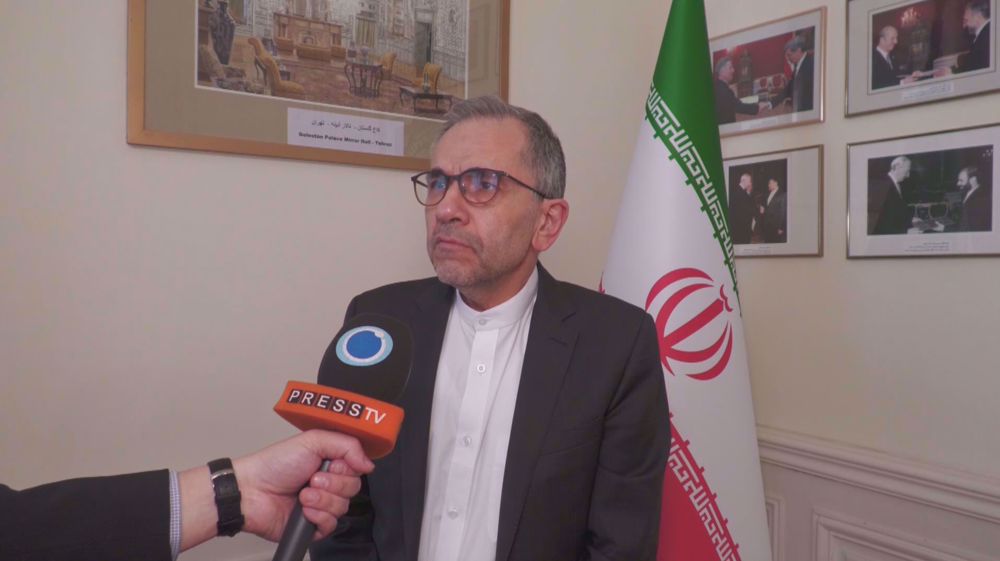Hardliners want Greece out of eurozone: Academic
Press TV has conducted an interview with Jack Rasmus, a professor of political economy, to get his take on the Greek debt crisis.
The following is a rough transcription of the interview.
Press TV: Isn’t Syriza-led government fair to be demanding less concessions and less austerity considering how Greeks have spent five years of belt-tightening measures without much to show for?
Rasmus: Well, absolutely. I mean the Syriza Greek government has made significant concessions since March 1 and the extension of this agreement. They’ve been met by refusals all long the way by the troika – that’s the ECB, the IMF and the European Commission – to make any counter-concessions in turn.
Very clearly, the position of the troika is, ‘You either agree to extend previous agreement almost mostly as is, or else we will push you out of the eurozone,’ I think.
There are two split groups within the European government troika; one clearly led by Wolfgang Schäuble and the Germans want to force Greece to default and leave; they think it’s better if they did; and another group that’s not so convinced that that might not be a big problem.
So, what’s happening is on the European, the troika side, they’re waiting to see what the results of this plebiscite would be. If the voting is overwhelming by the people to support the Syriza government, then I think the troika will make another offer. The IMF has indicated and signaled to that extent. But if it’s a close vote, then they’ll pick the position that they are not going to change and try to force a change in the government in Greece.
That’s really what the hardliners want to do. They want to a vote of confidence, they want to shake up that government, get a more amenable new government in there and negotiate.
So, it’s very fluid and not much is going to change until we see the result of this plebiscite on July 5.
Press TV: Right now, we do know that a lot of European governments are meeting in different capitals; emergency sessions are being held. What do you think is being hammered out over there?
Rasmus: Well, they’re supposed to meet... Angela Merkel’s called a meeting in Berlin and most of these governments in there and the politicians are going to meet. And then, they’re going to probably have to decide whether they’re going to be prepared to make some more concessions to get a solution or whether they’re going to adhere to the hard-line Plan B – abide by the Germans and Dutch bankers and their ministers – which is it’s better to have Greece leave. They can’t throw Greece out by their own laws. So, they have to force Greece to leave.
And that’s probably what they’re going to discuss, what their next last-stage, eleventh-hour strategy is going to be between now and July 5, and immediately what they will do based on the vote after July 5.
Press TV: And do you think powerhouses like Germany will ever be ready to let Greece go, though?
Rasmus: Well, I think there’s a strong group that believes... Schäuble is one of those and he’s believed that for some time and he signaled this that he thinks it’s better for the European Union and the eurozone... at least the eurozone, the currency zone, if Greece does leave and of course they can’t push them out; so, they create this intolerable situation, which will include a run on the banks. Greece can’t keep the banks closed much longer for more five or six days and that will precipitate an economic and political crisis in Greece, in which the outcome will be either to leave or to form a new government and to negotiate all over again more favorably to the hardliners and the troika.
ABN/HJL

Shahin Hazamy arrested primarily for his viral pro-Palestine social media posts: Filmmaker

Press TV interviews Iran deputy FM on nuclear program, sanctions relief

The price we paid for freedom
51 civilians killed in Gaza as Israel ramps up attacks amid all-out blockade
VIDEO | Mohsen Eslamzadeh, visionary filmmaker
Israel bombs Lebanon's capital Beirut
Trump wants 'free' transit for US ships in Panama, Suez canals
Israel and its arms suppliers ‘must be stopped,’ UN says
Putin orders emergency planes to Iran after blast at port of Bandar Abbas
Pezeshkian visits Bandar Abbas to monitor response operations after port blast
VIDEO | Press TV's news headlines






 This makes it easy to access the Press TV website
This makes it easy to access the Press TV website